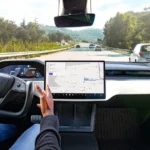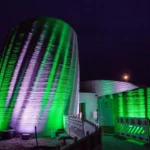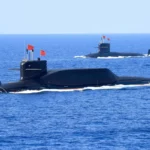As pandemic-imposed travel restrictions and foster global unity, Vilnius, the capital city of Lithuania, has unveiled a groundbreaking project—a real-time “portal” connecting it with Lublin, Poland, the project known as the “Vilnius Lithuania Portal.” They went all-in on the idea and the design; it looks quite a bit like something out of the erstwhile sci-fi movie/show Stargate. Located in the heart of Vilnius Train Station Square, this innovative initiative serves as a physical gateway for cross-cultural dialogue and understanding.
Designed by engineers from Vilnius Gediminas Technical University’s Creativity and Innovation Centre, the portal features a circular shape symbolizing the wheel of time and space. It represents a virtual bridge between Lithuania’s capital, Vilnius, and one of Poland’s oldest cities, Lublin. The portal’s resemblance to a space-time portal adds a futuristic touch to its appearance, captivating the imagination of onlookers.
Historical Connections
The significance of this connection extends beyond mere geography. Vilnius and Lublin share a profound historical tie dating back to the Union of Lublin in 1569, which united Poland and Lithuania into the Polish–Lithuanian Commonwealth. The serendipitous selection of Lublin as a partner city underscores the project’s message of unity and collaboration.
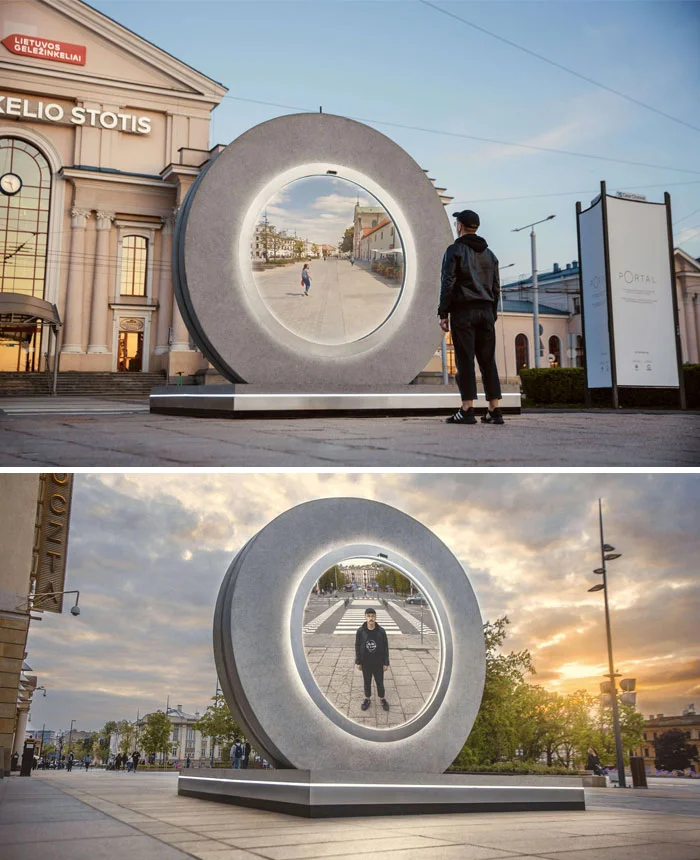
Connecting Through Technology
The city installed a circular “door” for the portal near its train station that connects to a portal in Lublin, Poland, about 600 kilometers (or roughly 375 miles) away. Equipped with large screens and cameras, the portal enables real-time interactions between visitors from both cities. Using videoconferencing technology,
individuals can engage in conversations and exchange messages with people from diverse backgrounds. The project aims to transcend physical barriers and foster a sense of global community. It took five years in the making, and its unveiling at the end of a yearlong pandemic is well-timed.
“From design and 3D modelling, to digital content development and logistic challenges – a project like this requires a broad and multifunctional team,” said Adas Meskenas, director of LinkMenu fabrikas. “Meaningful projects like this one are born when diverse people succeed in working together and achieving synchronicity.”
The portal is a joint project with the Benediktas Gylys Foundation, the City of Vilnius, the City of Lublin, and the Crossroads Centre for Intercultural Creative Initiatives.
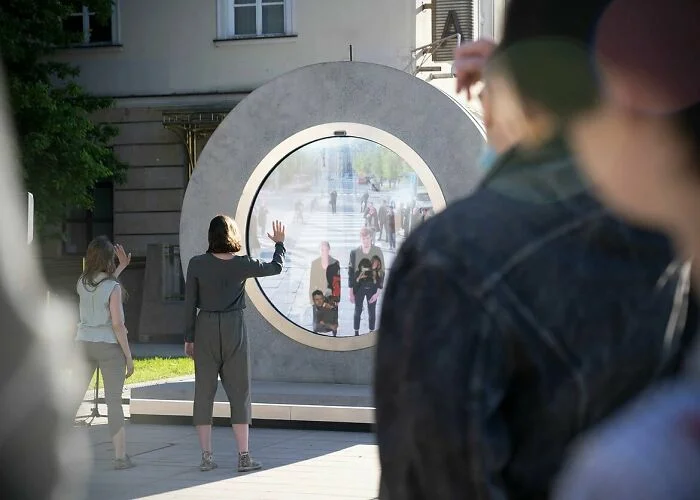
Message of the PORTAL project
The underlying message of the PORTAL project is clear: to transcend divisions and recognize our shared humanity. As Benediktas Gylys, the visionary behind the initiative, emphasizes, challenges such as social polarization and climate change stem from a lack of empathy and a narrow worldview. The portal serves as an invitation to rise above these limitations and embrace unity.
“Humanity is facing many potentially deadly challenges; be it social polarization, climate change or economic issues. However, if we look closely, it’s not a lack of brilliant scientists, activists, leaders, knowledge or technology causing these challenges. It’s tribalism, a lack of empathy and a narrow perception of the world, which is often limited to our national borders,” says Benediktas Gylys, President of the Benediktas Gylys Foundation and who Go Vilnius credits as the “initiator” of the portal idea.
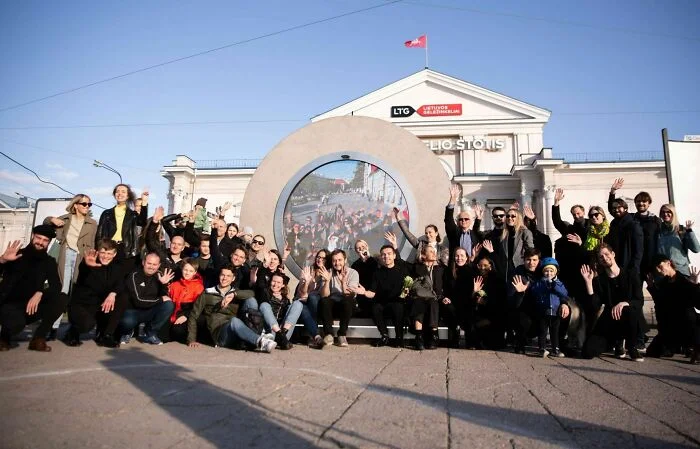
Despite the absence of continuous sound transmission, the portal has sparked spontaneous interactions among passersby. From friendly waves to impromptu gestures, people have found creative ways to connect across distances. The project’s creators observe that the portal fosters a sense of curiosity and camaraderie, transcending psychological barriers.
While the portal between Vilnius and Lublin marks a significant milestone, it is just the beginning. Plans are underway to expand this initiative globally, with future portals slated for cities such as Reykjavik, Iceland, and London, United Kingdom. Each new connection represents an opportunity to strengthen bonds and promote dialogue on a global scale.
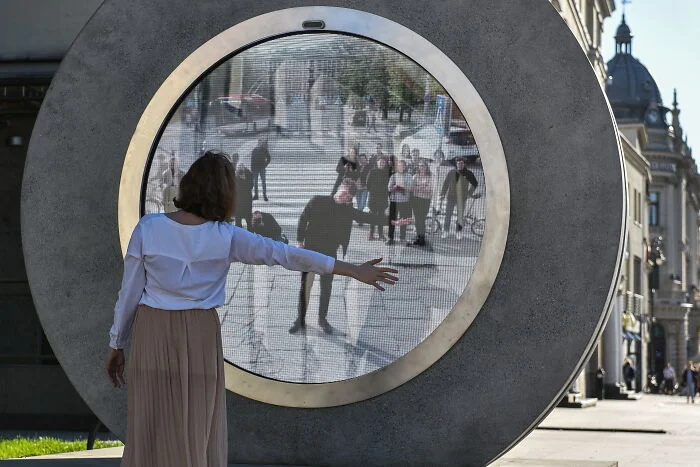
The project’s implementation faced various challenges, including the need for a design that balances simplicity with durability and environmental responsibility. After meticulous planning and testing, the portal was constructed using materials such as concrete, stainless steel, and tempered glass, ensuring resilience against vandalism and minimizing environmental impact.
Beyond its technological innovation, the PORTAL project seeks to foster social cohesion and empathy. By providing a platform for face-to-face interactions across borders, the portal encourages dialogue and understanding among people of different cultures and backgrounds. As societies grapple with polarization and division, initiatives like the Vilnius Lithuania Portal offer a beacon of hope for a more connected and inclusive world.


